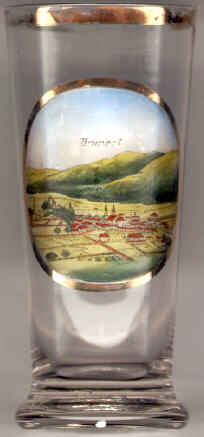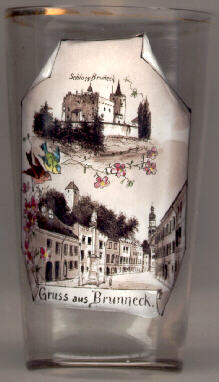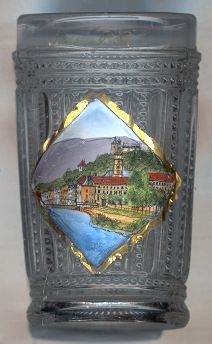

|
| ITALIA | ITALY |
| autonome Region: Trentino-Südtirol / regione autonoma: Trentino-Alto Adige | Trentino – South Tyrol |
| autonome Provinz: Bozen – Südtirol / provincia autonoma: Bolzano – Alto Adige |
 Bruneck (Italian: Brunico, Ladin: Bornech) is situated at an elevation of 835 m in a wide basin of the Puster valley
(the valley of the river Rienz/Rienza) where the valley is joined by the Gader valley (leading South into the Dolomites)
and the Ahrn valley (leading North into the Zilllertaler Alps).
The area had already been inhabited during the Stone, Bronze and Iron Ages. During the Roman period the
Celtic/Illyric inhabitants were converted to the Christian faith. During the 6th century the Germanic Baiuvarii finally
replaced the Slavic population of the area until the 8th century. In 1091 the bishops of Brixen (Bressanone)
came in possession of the area.
The first document mentioning Bruneke dates from 1256. During the 14th and 15th centuries Bruneck became wealthy
as it was situated on an important trading route from Augsburg to Venice.
The Puster valley, which in the 14th century was part of the territories of the Counts of Görz (Gorizia)-Tirol,
was inherited by the Habsburgs in 1500. Bruneck itself, however, remained part of the territory of the bishops of Brixen until the secularisation of 1803.
The town was devastated several times between the 14th and 19th centuries by the plague, fires and earthquakes, but always
was rebuilt. Between 1814 and 1914 Bruneck became a thriving centre of summer and winter tourism and its economy was further
boosted by the opening of the Puster valley railway in 1871. After World War I, Bruneck, as part of South Tyrol, finally became part of Italy.
Bruneck (Italian: Brunico, Ladin: Bornech) is situated at an elevation of 835 m in a wide basin of the Puster valley
(the valley of the river Rienz/Rienza) where the valley is joined by the Gader valley (leading South into the Dolomites)
and the Ahrn valley (leading North into the Zilllertaler Alps).
The area had already been inhabited during the Stone, Bronze and Iron Ages. During the Roman period the
Celtic/Illyric inhabitants were converted to the Christian faith. During the 6th century the Germanic Baiuvarii finally
replaced the Slavic population of the area until the 8th century. In 1091 the bishops of Brixen (Bressanone)
came in possession of the area.
The first document mentioning Bruneke dates from 1256. During the 14th and 15th centuries Bruneck became wealthy
as it was situated on an important trading route from Augsburg to Venice.
The Puster valley, which in the 14th century was part of the territories of the Counts of Görz (Gorizia)-Tirol,
was inherited by the Habsburgs in 1500. Bruneck itself, however, remained part of the territory of the bishops of Brixen until the secularisation of 1803.
The town was devastated several times between the 14th and 19th centuries by the plague, fires and earthquakes, but always
was rebuilt. Between 1814 and 1914 Bruneck became a thriving centre of summer and winter tourism and its economy was further
boosted by the opening of the Puster valley railway in 1871. After World War I, Bruneck, as part of South Tyrol, finally became part of Italy.

 Bruneck castle [right, no. 037: top]
was begun around 1250 by Bruno von Kirchberg, bishop of Brixen.
The castle was extended several times during the 14th, 15th and 16th centuries. Since then it has remained almost completely intact and unaltered.
Apart of a brief period of Bavarian administration in 1806, the castle had remained in possession of the bishops of Brixen ever since.
Bruneck castle [right, no. 037: top]
was begun around 1250 by Bruno von Kirchberg, bishop of Brixen.
The castle was extended several times during the 14th, 15th and 16th centuries. Since then it has remained almost completely intact and unaltered.
Apart of a brief period of Bavarian administration in 1806, the castle had remained in possession of the bishops of Brixen ever since.
A note on the spelling of the name "Bruneck": The correct spelling is with one 'n' only. A popular misspelling is "Brunneck" (as on glass no. 037 [right]) because -brunn-, which is derived from the German word 'Brunnen' (well, spring), is part of many German place names. The name Bruneck, however, is derived from the founder of the town, bishop Bruno.

![[scale]](lineal.jpg)